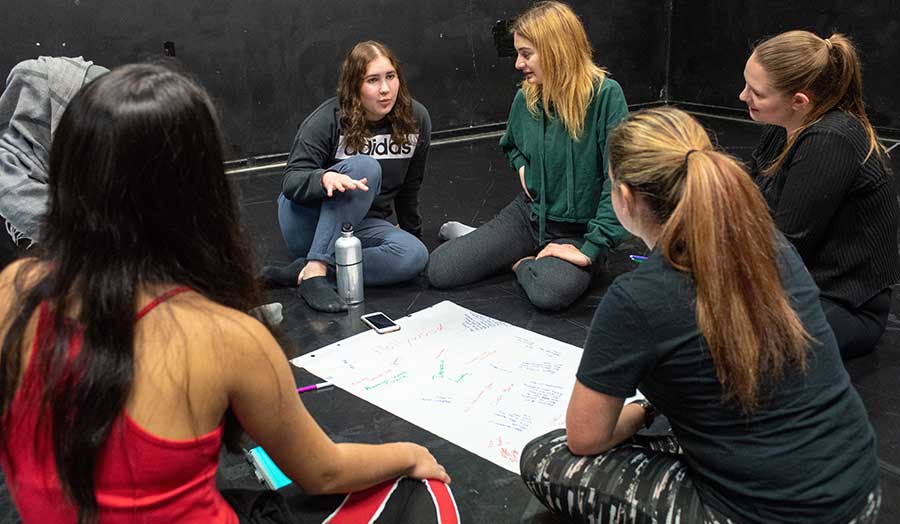Research is key
When preparing to apply for teacher training, it’s essential that you research teaching, the education system and all the different routes into teaching.
That said, we know there’s a lot of information to navigate so here’s or quick guide to help you break down the necessary prep into three different areas:
1. Research the system
A lot of things could have changed since you were at school, so it’s really important to look into what the current education system is like and understand the challenges teachers are facing. This will help you make an informed decision about whether you think teaching is the right career for you.
Where to look:
- Tes.com is an online platform for teachers all around the world — look for trending topics and debates about issues affecting teachers
- The education section of newspapers or online news resources — find out what debates are happening in the world of teaching
- News stories — it’s also good to stay on top of current developments in the news
- Speak to people — talk to friends or relatives who are teachers and find out more about the pastoral side of things
- Search online for teaching blogs or social media accounts — find out about the challenges and rewards of teaching from people who are doing the job
2. Research your subject or Key Stage
Find out what the requirements are for the subject or Key Stage you’d like to teach.
Lots of people assume that unless they have a degree in a particular subject, they wouldn’t be able to teach it. But that’s not the case. You may have a degree in a similar subject or have covered enough similar content to demonstrate that you have enough subject knowledge. There are also Subject Knowledge Enhancement (SKE) courses that you can undertake to improve this.
While researching your chosen subject or Key Stage, also explore the topics covered and what the aims are. You can look at the national curriculum and also research how the subject or Key Stage is assessed eg phonic exams, SATs, GCSEs, A Levels, plus internal school and teacher assessments.
3. Research the routes into teaching
There are lots of different ways that you can become a teacher and all routes give a minimum of 120 days of school experience. The ‘gold standard’ of options is a course that offers QTS and PGCE, which is Qualified Teacher Status and a Master’s level Postgraduate Certificate in Education.
All of our training courses offer QTS plus PGCE and combine training days in the University with extensive practical experience. It’s important that you choose the route that’s right for you.
University-led PGCE courses
This is the most popular route into teaching. You’ll experience university lectures, assessments and receive support and guidance from tutors and lecturers. For hands-on experience, you’ll complete two extended school placements.
A PGCE is an unsalaried route into teaching but grants and bursaries may be available to you.
Graduate teacher apprenticeships with PGCE
An employment-based route into teaching. You’ll be employed by the school and work as a teacher for up to 80 per cent of your time, with the other 20 per cent set aside for training.
Places on these apprenticeships are salaried and in short supply. Usually these are taken by candidates who already have experience of working in schools because schools offering these opportunities will want to make sure they employ someone who can hit the ground running.
Schools Direct unsalaried PGCE courses
Almost identical to a university-led PGCE, but you’ll be linked more closely to a specific school partnership or location.
This course would be the most appropriate option if you need to work in a specific location or school.
4. Research your eligibility for the course
It’s also important that you research your eligibility for a course. All of our course pages have a section detailing specific entry requirements, so you can see exactly what you need in order to be considered for a place on the course.
To find out more about eligibility, take a look at our eligibility blog post.
5. Consider whether teaching is the right profession for you
Teaching is a rewarding profession, but it doesn’t come without its challenges. It’s important that you thoroughly research and consider whether it’s the right career path for you.
As a teacher, you’ll be granted a great amount of responsibility, which is both fulfilling and demanding. Many teachers experience high levels of work-related stress, so resilience is a fundamental trait you’ll need.
The Teachers’ Standards set a clear baseline of expectations for the professional practice and conduct of teachers, and also define the minimum level of practice expected of teachers in England. Before applying to a teacher training course, we’d strongly advise you familiarise yourself with these standards.












-(1).jpg)